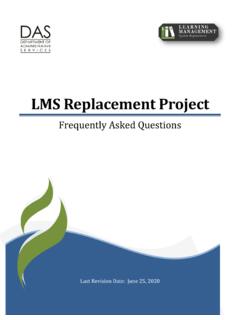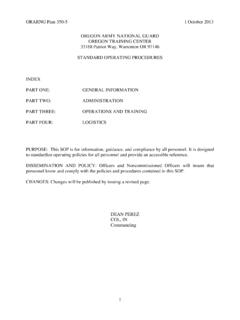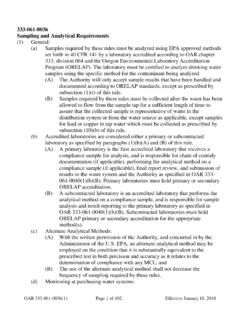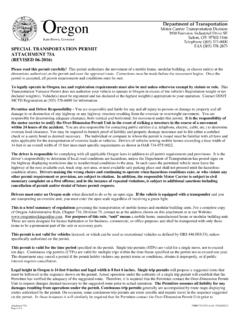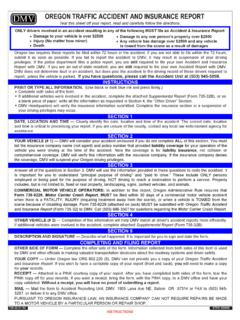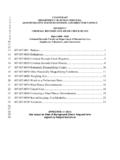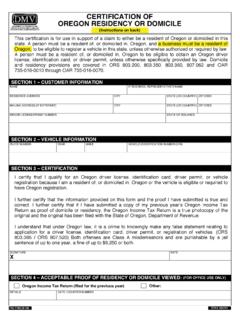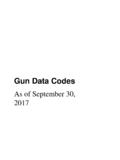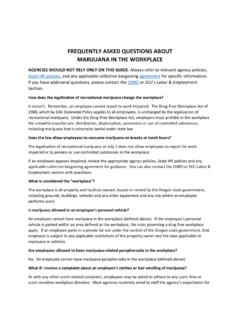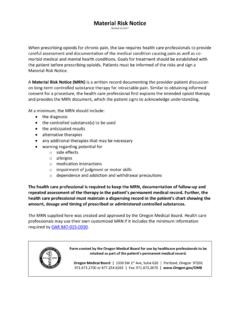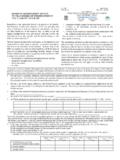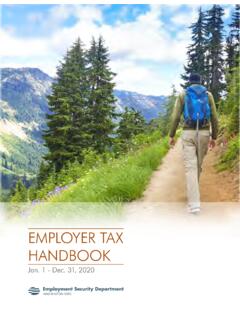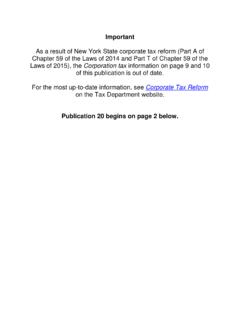Transcription of Payroll Tax Basics - Oregon.gov : State of Oregon
1 Payroll Tax Basics Understanding basic requirements for reporting and paying Oregon Payroll taxesPayroll Tax BasicsHiring employees in OregonThis section will explain and answer questions about Oregon s basic Payroll tax requirements such as: Where do I start? What are all the Payroll tax requirements? Which taxes do I need to report and pay? When are they due? How are they reported? Payroll Tax BasicsI plan to use a Payroll service; do I still need to know this information? Even if you plan to use a Payroll service or an accountant, you need to understand your responsibilities of meeting all filing and paying requirements and ensure that all taxes are reported and paid Tax BasicsWho is required to pay withholding?
2 Any in- State or out-of- State employer with employees working in Oregon and being paid for those services. Employers are required to withhold tax whether or not their employees are Oregon residents. Work locations include job sites, office locations, sales territories, or an employee s home. Employers may not have to withhold tax on Oregon employees if they can prove that each employee will receive $300 or less within a calendar Tax BasicsRequirements for employers located in Oregon : Oregon employers are required to pay withholding on all wages earned by Oregon resident employees no matter where the work is performed.
3 Oregon employers with nonresident employees are also required to pay withholding on all wages earned in Oregon . Oregon employers with nonresident employees working outside the State are not required to withhold Oregon taxes on these wages. Payroll Tax BasicsRequirements for employers located outside of Oregon with Oregon resident employees: Employers are required to pay Oregon withholding tax on all wages earned by resident employees working in the State , even if they work from home. Out-of- State employers are not required to pay Oregon withholding tax if all the work is performed outside of Oregon .
4 However, out-of- State employers can choose to register and withhold Oregon taxes as a convenience to the employee. Payroll Tax BasicsEmployer located outside of Oregon , with Oregon nonresident employees: Nonresident employers must pay Oregon withholding tax on nonresident employees performing services in Oregon . Wages paid for services performed in Oregon are taxable to Oregon . However, if the employee s wages for the calendar year fall below the standard deduction amount an employee normally claims on their personal income tax return, withholding tax would not be required ( , married filing jointly).
5 Employers would use the standard deduction amounts from the Oregon personal income tax return. Additional withholding/transit tax information for out-of- State /nonresident Tax BasicsWhat is considered wages? Wages include all salaries, commissions, bonuses, draws, fees, payments to a deferred compensation plan, or other items of value paid for services performed. If nonmonetary compensation is given in lieu of cash, such as property, rent, etc., employers must determine the fair market value of the item and include it in taxable wages.
6 Any compensation paid to corporation officers for services performed for the corporation is also considered wages, whether the corporation is a standard or an S Tax BasicsEmployers may also be required to report and pay transit district taxes: The Oregon Department of Revenue administers transit tax programs for two major transit districts in Oregon that carry a ridership of more than 2 million a year:1. Tri-County Metropolitan Transit District (TriMet): This covers the Portland metropolitan area and surrounding counties (Washington, Multnomah, and Clackamas counties).
7 2. Lane Transit District (LTD): This covers the greater Eugene/Springfield area (Lane County). Payroll Tax BasicsWhat are transit taxes? Transit taxes are employer taxes used to fund the mass transit district. These are not deducted from the employee s paycheck. All employers paying wages earned in either the TriMet or LTD districts must report and pay transit taxes. Wages include all salaries, commissions, bonuses, fees, payments to a deferred compensation plan, or other items of value. Services can be performed from a job sites, office locations, sales territories, or an employee s home.
8 Additional transit tax Tax BasicsAre there other Payroll tax obligations? Yes. These tax programs are administered by their own separate agencies:1. Employment Taxes ( State unemployment Insurance or SUTA): These taxes are paid into a trust fund to provide unemployment insurance benefits to workers unemployed through no fault of their own. 2. Workers Benefit Fund Assessment (WBF): These taxes fund programs that help injured workers return to work and provide benefits to those permanently disabled due to a work-related injury. Note: The WBF Assessment must not be confused with Workers Compensation Insurance.
9 They are two separate programs. Payroll Tax BasicsWhat is the next step to comply with Payroll tax obligations?1. Obtain a business identification number (BIN) by completing the Combined Employer s Registration. Instructions for completing this Receive the necessary forms to report and pay your taxes. You must have registered and received your BIN before you can obtain reporting Registering for Combined Payroll Tax Reporting must be completed before hiring the first employee, but not more than six months before issuing your first Tax BasicsWhat is the Business Identification number (BIN)?
10 The BIN is used for reporting, paying, or making inquiries about your withholding, unemployment insurance, transit taxes, and the Workers Benefit Fund assessment. This is not the same as the Business Registry Number you obtained when you originally registered with the Secretary of State s Corporation Division. The BIN must be included on all correspondence, returns, and payments. Payroll Tax BasicsAbout Oregon s combined Payroll tax reporting: Combined Payroll tax reporting allows employers to report and pay all Oregon Payroll taxes under one tax identification number and to file one report.
